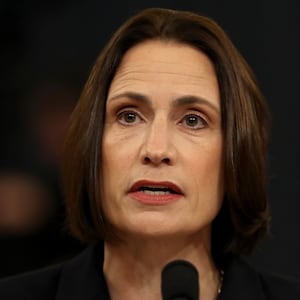Most of Trump’s meetings with foreign business leaders that I attended were, like the episode in Kensington Palace, more about holding court than holding forth on issues of concern for American workers. Sometimes the president took bizarre turns into rambling monologues completely lacking in substance. It was becoming clear that this was how the man who had ridden into the White House on the grievances of ordinary Americans was going to fritter away his time in office—forcing captive audiences to indulge him as he went off on personal tangents.
During one encounter with Sweden’s most prominent business leaders in March 2018, the discussion quickly veered off onto the subject of the Nobel Peace Prize and medal. Although Nobel Peace Prizes are awarded by a Norwegian committee in Oslo, the founder of the prizes, Alfred Nobel, was a Swedish-born industrialist, and the committee for all the other prizes is in Stockholm. The meeting was, like many, in the Roosevelt Room, across from the Oval Office. President Teddy Roosevelt had won the Nobel Peace Prize in 1906 for brokering the Portsmouth Peace Treaty ending the 1905 Russo-Japanese war. President Roosevelt’s medal hung on the wall. President Trump stared at it balefully. He was aggrieved that his predecessor, Barack Obama, had been awarded the Nobel Peace Prize at the very beginning of his tenure, “without even doing anything.” Trump had frequently complained about this publicly, and now, privately, he was complaining again because of the location in full sight of the offending medal itself and a captive audience of Swedes, who would surely relay his complaint back to the Nobel committee.
Discussions with world leaders similarly became “me, me, me” sessions. Trump rarely talked about U.S. policy, and never really bothered to read the briefing materials that laid out the policy points in the first instance. He would refer to things happening on “my watch,” offer his views on topics, which were often based on a conversation he had had with a personal friend (which he would actually say directly), or repeat something he had heard on Fox News. Whenever he could, Trump would turn the discussion around to some of his pet peeves to get them off his chest—windmills and the advent of wind power was one that always came up. The president was not a fan of most renewable energy projects, except for hydropower. He would go on at length about how huge wind turbines marred the view and reduced property values or decimated migratory birds.
ADVERTISEMENT

Former President Donald Trump greets the crowd at a rally on September 25, 2021 in Perry, Georgia.
Getty ImagesDuring the July 2019 state visit, the Brits had wanted to talk about climate change. They tried to put the issue on the formal agenda for the meeting at Number 10. The president refused. It was not an issue he wanted to talk about after pulling out of the Paris Climate Agreement. He hated Europeans’ trying to raise it again and put him on the spot. So the Brits deputized Queen Elizabeth’s eldest son and heir, Prince Charles, to discuss the subject at the U.S. ambassador’s dinner. That way Trump had to at least listen to the prince’s points, even though he was not enthused (and said so to the press after the dinner). Trump’s favorite topics were golf or other sporting events and related analogies, and his personal or family’s business success. Many times, taking notes and having to write them up again for the record, I would be tempted to summarize rather than relate all the little details. I got to the point where I could have just scripted the dialogue myself. I knew all the stories by heart, including the variations and embellishments.

When cabinet members, ambassadors, or NSC staff would try to interject to offer thoughts on policy issues during prep sessions, Trump would push back: “I know this better than all of you… What do you have to tell me? I have been doing deals all my life. I don’t need to learn anything from you.” He was also always playing hardball on policy issues with counterparts to cajole or intimidate them into doing something. It was rarely a measured discussion. He often set out extreme possibilities, like threatening to leave NATO if Germany, France, and other countries didn’t increase their defense spending in line with alliance commitments. If someone around him cautioned about the foreign policy risks of even raising these threats, he would immediately shoot back: “Fellas, you’re currying my play… You are ruining my leverage.” Everything was framed like a hardnosed business deal. Eventually foreign leaders like German chancellor Angela Merkel and French president Emmanuel Macron started to call him out on it in their exchanges. Clearly they had given up trying to work constructively with Trump. And as his presidency wore on, Trump seemed to have given up on doing much substantive work of his own, too. As was becoming clear, he had other plans.
Excerpted from the book THERE IS NOTHING FOR YOU HERE: Finding Opportunity in the Twenty-First Century by Fiona Hill. Copyright © 2021 by Fiona Hill. From Mariner Books, an imprint of HarperCollins Publishers. Reprinted by permission.






